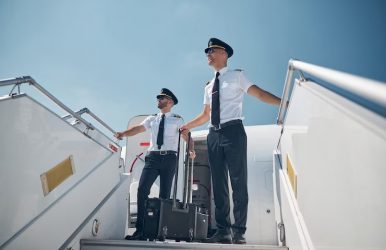What Are The Best Luxury Villas Italy Le Collectionist? Here Are Villas I Stayed In
BY Sibashree Oct 16, 2025
I still remember the fresh breath of air as I opened the gates of the Villa Spectra. The lush green hills in the backdrop were inviting for an immediate stroll, while the Sun-drenched terrace was calling me to get soaked in the Tuscan Sun. Everything about the villa was very intimate and warm, and just the way I wanted. The serene setting and the luxury inside! Everything was worth the wait! Yes, I planned and dreamt of the day for five years, kept a separate savings account for the travel, and that’s a different story! And I chose Le Collectionist villas because I wanted to soak in the luxury and richness Italy offers, with the history of the Gladiators and the Medici dukes and their sophisticated cultural landscape. I was in Italy for a trip of 15 days, and this is how the luxury villas and everything I saw became a part of my Roman Holiday. How Does History Speak Through The Alleys Of Rome? (With A Dash Of Luxury) The history of Italy is layered. So, knowing about the history of Italy is not like visiting points A, B, and C. Whether it is the Leaning Tower of Pisa or the walled city of Lucca, each location has a story to share. Now, choosing Villa Spectra from Le Collectionist was again a brilliant choice for me, as their concierge services and local partners ensured access to the real narratives of the places. 1. Tuscany: When Light Teaches Patience And The Time Stands Still My mornings in Tuscany began with the slow rattle of shutters. From the kitchen window, cypress trees pointed like metronomes toward a pale sky. Furthermore, it was quite warm by the afternoon, and floating in the villa pool, reading, or catching up on the best delicacies were the best refuge I could think of. By dusk, I was out to see the color of Chianti. Seeing the sunset rays painting the houses while sipping a glass of Brunello was the ultimate Tuscan experience. The Val d'Orcia landscape, a UNESCO World Heritage Site, was the highlight of my Tuscan experience. Also, the overall Tuscan landscape looked like a Renaissance painting for me, with verdant hills and cypress trees. 2. Puglia: The Still Stones Carry The Secrets The dry stone architecture of Alberobello looked like the Sakshi or eternal witness I have read about in many Hindu texts. Now, thousands of miles away, I was connecting to my roots, and I had goosebumps thinking about the universality of the truth. Masseria Ozen was my home for the days in Puglia. 3. Amalfi Coast: Sniffing The Sea And Lemon Positano ridgelines and Amalfi were the highlights of my day in Amalfi. I had the most theatrical experience in Amafi amidst the whiff of lemon and white stones. My mornings here started with the sound of espresso spoons in the coffee cups and morning bells. Evenings were lazy, sipping on the sharpest Amalfi sherbet and watching the ferries passing. However, for me, the most exciting part was taking an after-hours walk with the villa concierge, taking us through Pompeii. The fresco colors were magical. 4. Rome And The Appian Way: Where History Speaks The villa I was staying in gave me access to the Appian Way through the garden gate. With the city still sleeping and the cold stones under my feet, it was like going many centuries back. I kept exploring, and when I reached the Villa dei Quintili ruins, the light had turned honey-gold. I sat on a fallen column and felt, absurdly, both guest and citizen of another age. Don’t Rush: Pick Your Favorite Zone In Italy You cannot rush a holiday in Italy. Now, I was on a 15-day vacation, and that’s why I could touch upon many areas. However, with my trip ending, I realized that it was foolish of me. I should have focused on a distinct zone. Must-Visit Zones in Italy Highlights Puglia and Alberobello • Olive Groves • Trulli Districts • White Towns Rome and the Appian Way • Cecilia Metella • Villa dei Quintili Tuscany and Val d’Orcia • San Quirico • Montalcino • Pienza Amalfi Coast and Pompeii • Positano Ridgelines • Frescoes and Forums in Pompeii • Ravello • Amalfi Sardinia • Su Nuraxi Nuraghe Complex Venice and the Lagoon • Torcello’s Basilica Lake Como and Lombardy Villas • Alpine Views • Villas with Liberty-Style Architecture Don’t Forget To Listen To The Hidden Narratives When visiting places such as Pompeii, the Val d’Orcia, or Puglia, there is much to explore beyond what meets the eye. For example, the graffiti of Pompeii features election advertisements, love notes, and more, indicating a complex past. On the other hand, the Val d’Orcia is a testament to the Renaissance urban planning. Again, the dry stone architecture of Puglia can be a lesson about how to defy gravity. Why I Chose Luxury Villas Le Collectionist? For Quiet Luxury And Love For History, Of Course View this post on Instagram A post shared by Le Collectionist (@lecollectionist) I chose the Luxury villas Le Collectionist because I wanted to stay near the key attractions in Italy without the hassle of crowds. I wanted some quiet time, and the concierge team was very helpful in suggesting the right day and time to visit the important landmarks. They also helped me with the ticketing and stuff. Furthermore, they arranged special after-hours access for the villa residents. So, staying in the Le Collectionist luxury villas was not just about finding the most premium accommodation. They ensured access to a deeper and more convenient cultural exploration. How Can You Choose The Best Luxury Villas Italy Le Collectionist? The time of your visit (seasonality), the experience you want, the style of villas, and some non-negotiable attributes are the things to be considered when choosing the best luxury villa by Le Collectionist in Italy. Factors to Choose the Best Luxury Villa Details Type of Experience You Want • For farmhouse-like setups, choose villas in Tuscany. • If you want the dramatic experience of a cliff villa, choose one in Amalfi.The Style of Villas• When traveling solo or with your partner, a compact villa will be the best choice for you.• You will need a multi-suite villa when traveling with your family.Seasonality • In winter, the piazzas and museums of Rome are the go-to places. So, choose villas near them.• Furthermore, shoulder seasons are ideal for outdoor exploration. So, choosing a villa near the Amalfi Coast or near Tuscany will be a great choice.Non-Negotiable Attributes • Pools • Pergolas • Airconditioning • Water Facilities What Are The Best Luxury Villas Italy Le Collectionist For History And Premium Experience Lovers? Here are the best Le Collectionist villas in Italy if you want to explore the history of the country and the dolce vita. 1. Villa Spectra, Tuscany For me, Villa Spectra in Lucca was the main character of the Tuscan vacation story. The terrace and the living area of the villa gave me enough time and chances to soak in the Tuscan Sun. Villa Spectra has 5 bedrooms, and the charges are around $2400 per night. 2. Villa Masseria Ozen, Puglia View this post on Instagram A post shared by Mune_Architecture (@mune_architecture) Located in San Vito dei Normanni, Villa Masseria Ozen exudes a quintessential Italian charm. For me, the highlight of the stay in Villa Masseria Ozen was the dinner under the stars. Masseria Ozen has five bedrooms, and the charges will be around $1400-1500 per night. 3. Villa Salvatore, Amalfi Coast Within 300 meters of the Amalfi Coast, Villa Salvatore was my perfect home. The trees near the villa stretch down to the sea, and for me, the breakfast time on the terrace was amazing because of the stunning views around. Your stay at Villa Salvatore will cost around $3,665 per night. 4. Chalet Gatsby, Lake Como View this post on Instagram A post shared by Le Collectionist (@lecollectionist) Chalet Gatsby looks over Lake Como, and this is precisely why I chose it. However, the villa has only five bedrooms. So, check availability or try early booking. The villa is also close to the village of Brunate. I loved the walk from the villa to the village in the morning and late afternoon. The tariff here will be around $1500-3000 per day. 5. Villa Limoncello, Florence Villa Limoncello won me over with its serene location. Also, with an infinity pool, it made me wake to the sound of water. Furthermore, the hammam or the massage room was my favorite. This villa has seven bedrooms and five bedrooms, and the pocket pinch is $4,820 per night. Why Are Concierge Services Such A Big Deal? The concierge services and assistance of these villas were the common threads among the places I visited in Italy. Here’s why they are so special. 1. Guides Who Teach You About Places When I was in the Appian Way or Pompeii, the concierge service guides were like the mobile history books. 2. Makes Logistics Hassle-Free With concierge services, I did not have to worry about the car rentals. The vetted drivers took me to the important locations. They know everything from ZTL boundaries, parking spaces, and drop-off timings. 3. Ensures Smooth Access Concierge services take advantage of the tie-ups, and booking is always done through official channels. So, the slot selection is clean, and you will get the best official discounts. Exploring Italy Without Stress: Be Smart With Logistic Planning For Rome • Explore Appian Way places such as Aqueducts, Catacombs, and Quintili. Then, have a late lunch.• Wear sturdy shoes to walk comfortably on the basalt stones.Tuscany Days • Explore Val d’Orcia and don’t plan visiting more than two hill towns.Amalfi Coast • Avoid traffic with boat rides. Visit Pompeii early in the morning or late.Puglia • Visit Alberobello in the early morning.• Hit the beach at noon.• Have dinner under the vines. My 15-Day Travel Itinerary In Italy This is how my itinerary for the 15-day vacation in Italy looked. Days Activities Day 1 - Arriving in Lake Como • Traveling from Milan to Lake Como• Lakefront lunch• Boat ride to Varenna & Villa Monastero• Dinner at Villa• Watching Mirrored Lake at DawnDay 2 - Heart of Como • Visiting Villa del Balbianello• Having lunch in Menaggio by Lake Como• Riva boat tour • Spa in the evening• Aperitivo dinner in the villa Day 3 - Milan Excursion • Traveling to Milan• Visiting the Brera • District and The Last Supper Museum • Lunch at Marchesi 1824• Returning to Como Day 4 - Verona & Valpolicella • Driving east from Milan to Verona & Valpolicella• Visiting the vineyard villa near Negrar• Visiting Juliet’s balcony and Valpolicella wine tasting in the afternoon• Dinner under vines with Amarone & Tiramisù Day 5 - Venice Arrival • Reaching Venice and enjoying a water taxi ride to the Grand Canal Villa• Dorsoduro stroll in the afternoon• Sunset gondola ride• Seafood dinner at Alle Testiere Day 6 - Florence • Taking the train from Venice to Florence• Private Uffizi tour in the morning• Watching the sunset on Ponte VecchioDay 7 - Chianti Wine Route • Taking a vineyard drive from Greve to Radda on the Chanti Wine Route• Enjoying rustic trattoria lunch• Spending the evening in the villa by the poolside Day 8 - Val d’Orcia • Exploring Val d’Orcia • Moving South to Pienza Villa • Exploring Montepulciano • Attending local cooking classes Day 9 - Rome Arrival • Beginning of the Roman Story• Driving to the Appian Way Villa• Explore Villa dei Quintili and Cecilia Metella. Day 10 - The Eternal City • Early tour to the Vatican City• Having coffee at Piazza Navona• Visiting Pantheon, Trevi, and the Spanish Steps• Enjoying a terrace dinner in the villa Day 11 - Amalfi Arrival • Reaching Positano via Naples• The signature welcome at Villa Limoncello• Relaxing by the poolside• Having a seafood dinner Day 12 - Coastline by Sea • Boat to Capri & Grottoes • Having a Picnic with Champagne• Watching Sunset• Relaxing at Night in a Jacuzzi Day 13 - Pompeii & Vesuvius • Private archaeologist-led tour• Vineyard lunch & Lacryma Christi tasting• Swimming in the evening Day 14 - Puglia • Villa Check-In• Traveling to Bari• Visiting Trulli Dinner in the Olive Grove Day 15 - It’s a Wrap • Visiting Ostuni after an early breakfast• Lunch and Sunset Drink• Destination: Bari International Airport-Karol Wojtyla Local Secrets That No One Talks About The Val d’Orcia farmhouse owners explain the aging of the cheese served. So, you not only have the best cheese, but also an anecdote to take home. You have to plan your sleeping hours based on the location you are visiting. Puglia is the most beautiful in the twilight hours, and the Val d’Orcia ridge or the Appian Way are great for early walks. Once again, keep the official links of the tickets booked, offline maps, and documents handy. Moreover, avoid overscheduling, as driving and the distinct experiences at different locations require time. In addition, remember which area is suitable for what type of traveler. Have a look at the table below for a better understanding. Places to Visit in Italy Suitable for Travel Groups Nearby Heritage or UNESCO Sites Rome and The Appian Way History Enthusiasts and Families The Appian Way is a UNESCO World Heritage Site.Places to Visit here are:• Tomb of Cecilia Metella • Circus of Maxentius • Appia Antica Villas • The Catacombs of San Callisto Amalfi (Amalfi Coast, Positano and Ravello) Photographers and Couples • The cultural landscape of the Amalfi Coast PugliaFamilies and Multi-generational Groups • Alberobello Tuscany Road Trips • Val d’Orcia Sardinia Cultural Enthusiasts and Coastal Holidayers• Su Nuraxi Nuraghe Complex With Sustainability And Etiquettes In Mind… Italy is the country of ancient ruins. So, while exploring archaeological or historical places, you must be very careful and respect the barriers as explained by the guides and officials. Furthermore, opt for concierge services and travel in the early hours to avoid the rush in these cultural and historical places. Take help from licensed guides to help the local community and listen to stories that only locals know. Visiting Rome And Staying In Luxury Villas Italy Le Collectionist: FAQs Here are some frequently asked questions and answers. 1. What Is The Best Time To Visit Pompeii? Yes, Pompeii is a year-round destination. However, if you want to enjoy mild weather conditions, visit Pompeii in the shoulder seasons, such as September to October and April to May. 2. Why Is Trulli So Famous? Trulli, a place of great cultural importance, is famous as a UNESCO World Heritage Site. The stone huts here are whitewashed, and they have conical roofs.The architecture of these huts represents the quintessential architectural style of the Puglia Region. 3. Is There Any Resource To Learn About The Landscape Of Tuscany? Yes, you can read the UNESCO World Heritage Convention page on Val d’Orcia and other heritage sites to have the historical or cultural background and context about them. 4. What Is The Best Villa-Based Experience Near Rome? You will find the Villa dei Quintili while driving on the Appian Way. The vast ruins get fewer crowds compared to other historical zones in Central Rome.You can keep an offline leaflet handy, as the mobile network may not work here.












